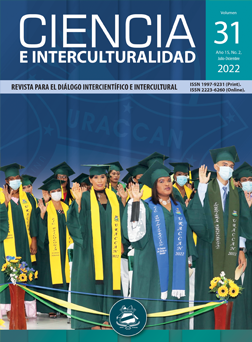Beliefs about mathematics problem-solving: An investigation with elementary school teachers
DOI:
https://doi.org/10.5377/rci.v31i02.15174Keywords:
beliefs, problem-solving, teaching, learningAbstract
This research has analyzed beliefs about solving mathematical problems. This is quantitative research based on an “Ex Post Facto” design where a scale of affective domain (beliefs, attitudes, and emotions) was provided to 118 women and men, primary school teachers from the Nicaraguan Caribbean Coast. The analyses suggest that teachers have positive beliefs that are manifested in factors such as confidence, security, perseverance, satisfaction, curiosity, liking, motivation, and usefulness to function successfully in solving mathematical problems. In addition, that beliefs about problem-solving do not differ according to age, gender, ethnicity, years of experience, and type of school (urban and rural). It is concluded that it is necessary to continue advancing in the processes of education and training of primary education teachers with a greater emphasis on the processes of resignification of experiences and mathematical practices contextualized to the communities.
Downloads
388
HTML (Español (España)) 128
EPUB (Español (España)) 114
XML (Español (España)) 152
resumen audio (Español (España)) 119
Abstract 133
Downloads
Published
How to Cite
Issue
Section
License

This work is licensed under a Creative Commons Attribution-NonCommercial-NoDerivatives 4.0 International License.
Copyright © (URACCAN)

This journal is licensed under a Creative Commons Attribution-NonCommercial-NoDerivatives 4.0 International License.
This license allows others to download the works and share them with others, as long as their authorship is acknowledged, but they can not be changed in any way nor can they be used commercially.




